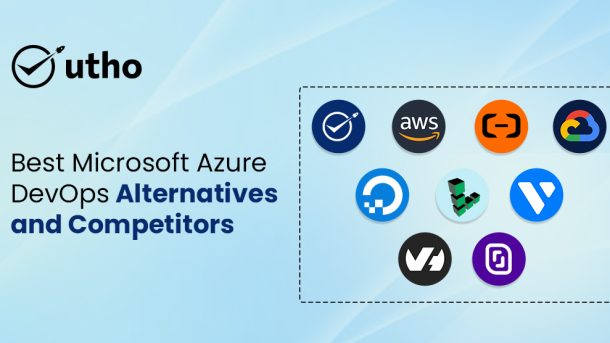Microsoft Azure offers more than 150 cloud products. These include IaaS, SaaS, and PaaS. IaaS is Infrastructure as a Service. SaaS is Software as a Service. And PaaS is Platform as a Service. Azure Cloud supports many use cases, but optimizing for your needs can be complex, expensive and difficult.
If Azure is overwhelming or wrong for you, this guide will help. This includes Microsoft Azure alternatives. Let's see why Azure alternatives can be good. We'll highlight what they offer and what Azure doesn't. We'll also look at how they match up with Azure's capabilities
Understanding Microsoft Azure: Its Uses and Applications
Microsoft Azure is a cutting-edge cloud computing platform designed for businesses. It provides the infrastructure, services, and tools. They are needed to build, deploy, and manage cloud applications.
Azure's public cloud service stands out. It lets many groups share computing resources. They can do so cheaply and securely to run applications.
Microsoft Azure: Unleashing Its Full Potential
Azure Cloud offers many products and services. They are for many industries. These include business, productivity, collaboration, personal computing, and online storage.
Azure offers both managed and self-managed services. They reduce your designers' workload or allow customization. Azure has more than 200 cloud products and services on a single platform. It includes containers, like Kubernetes. It has databases, both relational and non-relational. It has virtual desktops, Windows 365. And it has AI/ML/Data Analytics.
Key benefits include:
- Cost-effectiveness of some cloud services compared to its competitors, such as AWS.
- Great virtual desktop experience.
- Ideal for enterprise applications, including hybrid and multi-cloud deployments.
- Best price for Windows licenses.
- Business data security for data and applications.
- Access to a large number of Azure cloud experts from around the world.
- 60 data centers worldwide is the most of any cloud service provider.
- Up to 54% off dedicated usage and 90% off on-premises VMs.
- Exceptional performance with 99.9% SLAs.
Exploring Microsoft Azure's Downside
Azure offers many benefits. However, there are trade-offs that may force you to consider other options. Managing the Azure cloud can be challenging due to the many options.
Resize virtual machines
Finding the right configuration can be a trial-and-error process with many options.
Cost control
Cost control is important. Overspending and waste can happen due to confusing prices and limited cost tracking and visibility.
Customer Service
Azure customer support could be faster at no additional cost.
Enterprise Focus
Azure is best suited for large enterprises.
Vendor lock-in
The all-in-one design increases the risk of vendor lock-in.
Advanced knowledge required
Configuring, using, and maintaining Azure requires advanced technical skills.
Surprising costs
To avoid unexpected costs, the cost management functions are limited.
If these concerns concern you, it may be time to look for Azure alternatives. Here are some factors to consider when looking for a good alternative to Microsoft Azure.
Unlocking Options: Key Features to Seek in Azure Alternatives
You might want features that Azure lacks. Or you might want cheaper options, like Azure. Or you might want simpler versions, like HP Cloud. You can also expand to regions where Azure isn't the best.
These include Asia Pacific (Alibaba Cloud) and India (OVHCloud). Alternatively, you can choose a provider that focuses on developers (e.g., Utho). Or, one with better customer service (e.g., Vultr). Or, one with pre-configured virtual machines (e.g., Google Cloud). Here are some important tips to guide your decision-making process.
All-in-one cloud provider
This option may not be as wide as Azure. But, it can help you meet your needs now and in the future.
Pricing and Cost Management
Even small price differences add up. They can lead to big savings or waste. So, compare cloud resource prices and cost tools.
Windows licenses
Make sure the platform supports Windows. Also, make sure it has a good price for working with Windows solutions.
Cloud security and compliance
Make sure your choice supports the security and compliance standards for your industry. These include those for Azure.
Virtual Desktop (Cloud)
If you need a seamless cloud computing, like Windows 365, you should consider options. For example, GCP and Vultr are good choices.
Container management
Azure has Azure Kubernetes Service (AKS). But, you may want an alternative that supports Docker containers. For example, Amazon Elastic Container Service (ECS) or OpenShift.
AI/Machine Learning
Find better options than Azure. They provide strong AI and ML services. Do this if you rely heavily on AI and ML models.
Data analytics
If you need this feature, be sure this option has good analytics and business data. They should be similar to Microsoft Power BI.
Keep these considerations in mind. Here are some of the best Azure opportunities to explore today.
Top 5 Microsoft Azure Alternatives: Uncovering the Leading Applicants
Below are 10 of the best Azure Alternatives.
- Hyperscalers
- Amazon Web Services (AWS)
- Google Cloud Platform (GCP)
- Utho
- Alibaba Cloud
The target audience for Utho is developers, startups, and small to medium-sized businesses. It prioritizes simplicity and ease over comprehensive offerings. Regional services, on the other hand, focus on serving specific geographic areas. To choose the best Azure options, evaluate your tech needs and business goals. Consider workflow setups as well.
Hyperscalers

Hyperscalers, like AWS, Google Cloud, and Microsoft Azure, are big players in the cloud industry. They offer a big international network, advanced tech, and many services. This makes them attractive choices.
Many companies want sustainable and flexible cloud solutions. But their size and complexity can be overwhelming for smaller organizations. Also, their pricing models may not be clear. So, you must evaluate their offerings. Do it based on your company's needs and abilities.
Amazon Web Services (AWS)
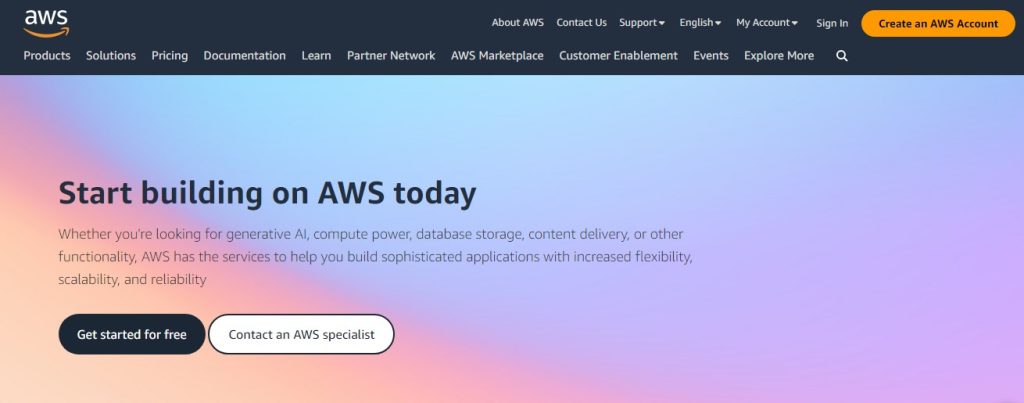
AWS offers many cloud services. These include computing, storage, and databases. They additionally provide a worldwide network of data centers. These services meet the diverse needs of customers. But, its prices are complex. They are hard to understand, especially for new users. AWS offers support services. However, its basic plan lacks support beyond billing/account issues. Response times can be slow, which challenges users.
Google Cloud Platform (GCP)
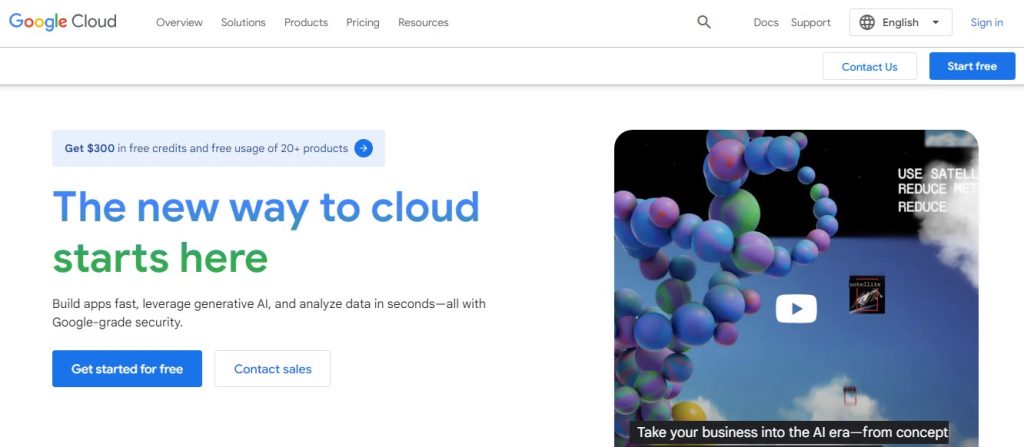
GCP offers many cloud services. They include AI, machine learning, and multi-cloud support. It stands out for its advanced AI solutions. It also supports powerful machine learning with NVIDIA GPU offerings. However, GCP's product range can confuse non-technical users.
Utho
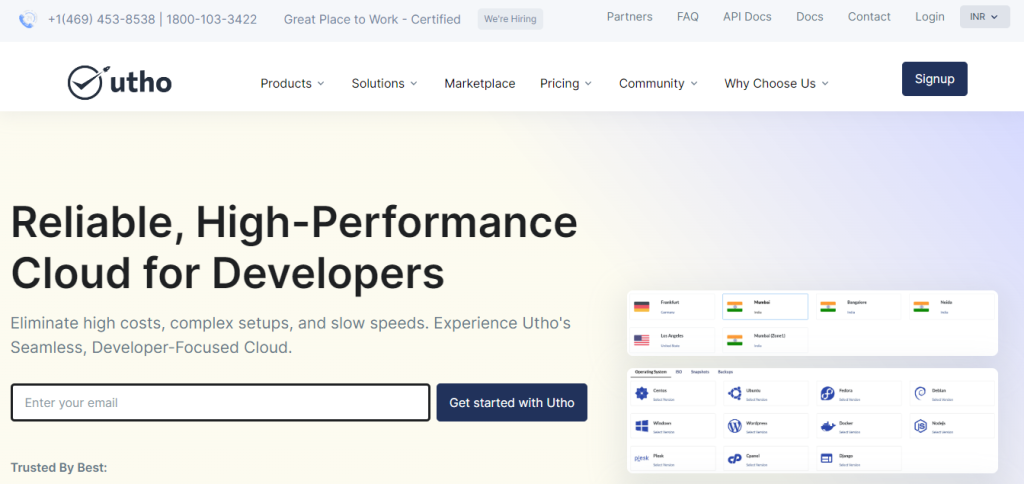
Utho shines with a simple interface, more than 22,000 users utho is emerging and an indian hyperscaler. It has a flexible API and command-line options. These make cloud management easy. With transparent pricing, it ensures affordability without compromising on quality. Businesses can save up to 60% on cloud costs compared to Azure and still enjoy great service. With Utho Cloud, organizations can confidently expand and succeed in the cloud ecosystem.
Alibaba Cloud
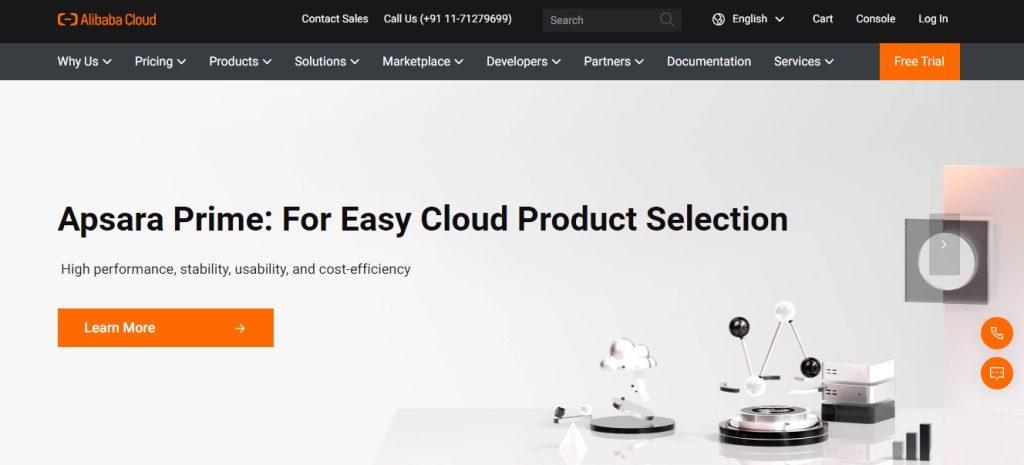
Alibaba Cloud is prominent in the Asia-Pacific region, especially in China. It offers cloud services tailored to local markets. It offers a wide range of services. These include data processing, database management, and artificial intelligence. This makes it a good choice for clients in these fields. But, its strengths and infrastructure work best for companies targeting Asian markets. Or, for those already in them. This is despite plans for global expansion.
Top 5 Azure Alternative cloud providers
| DigitalOcean |
| Linode |
| Vultr |
| OVHcloud |
| Scaleway |
More cloud providers now offer options. These are Azure alternatives to the platforms we discussed earlier. These providers offer clear benefits. These include personalized customer service, transparent pricing, and customized solutions. These are especially attractive to SMEs.
DigitalOcean
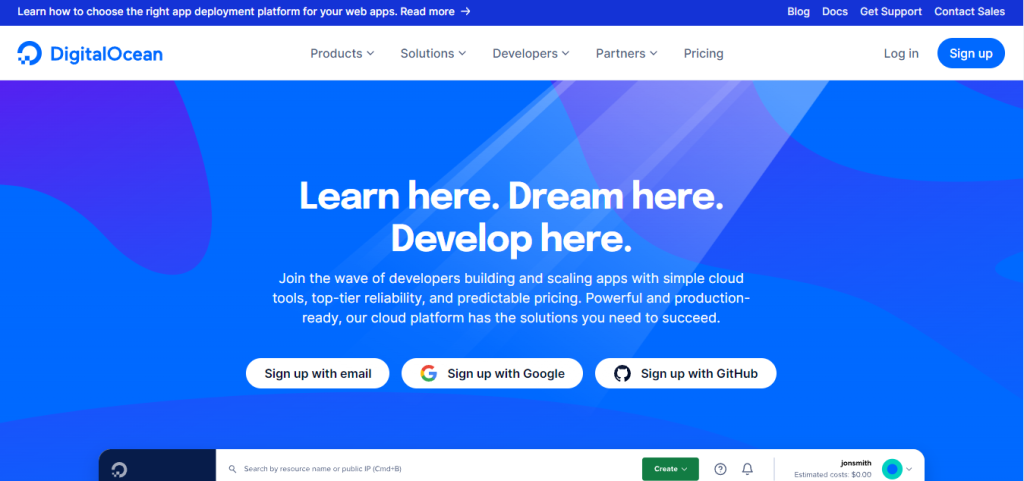
DigitalOcean stands out. They offer simple and cheap services with broad support and a wide range. It is an important alternative to Microsoft Azure for SMBs and developers. DigitalOcean has more products than other options. These include managed databases and Platform as a Service (PaaS). Its great support system has various levels of customer service. It has a dedicated 24/7 support team. This makes it an attractive choice for businesses. They want a comprehensive and user-friendly cloud computing platform.
Linode
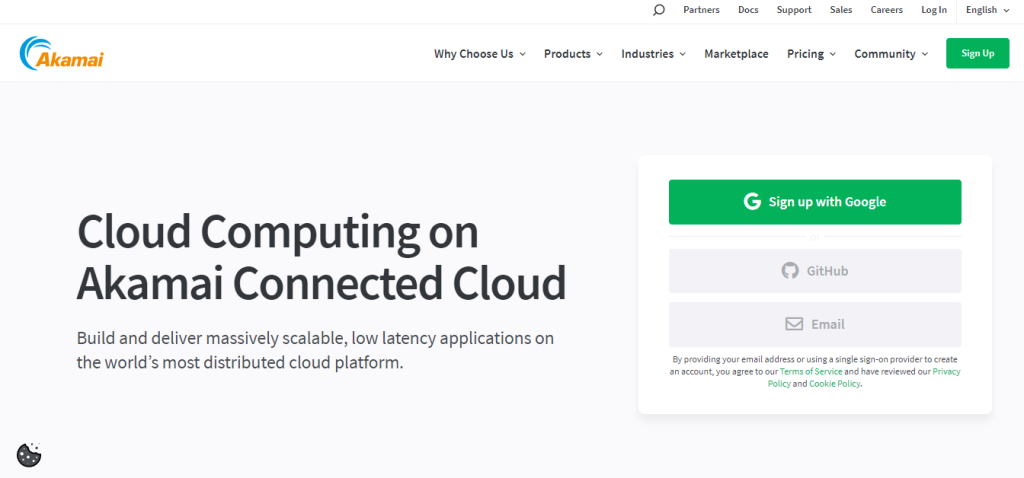
Linode has simple pricing. It has reliable performance. This makes it a popular choice among cloud developers. However, Akamai bought Linode in 2022. The purchase has left customers unsure about its future prices and services. They worry about possible stagnation under new ownership.
Vultr
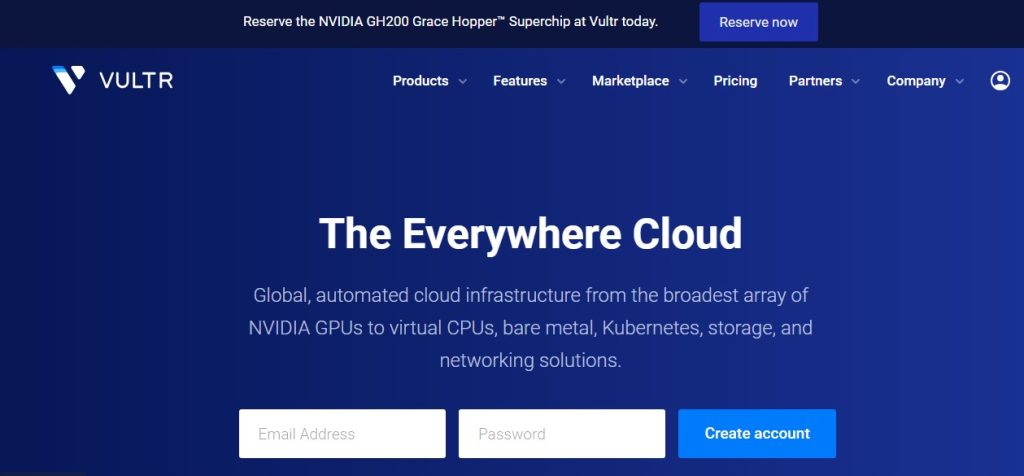
Vultr offers many computing and storage solutions. But, it lacks 24/7 support or paid options for urgent requests. Its managed database services are somewhat limited compared to competitors, such as DigitalOcean. Occasional outages have hurt users' trust, and caused a lower TrustPilot rating.
OVHcloud
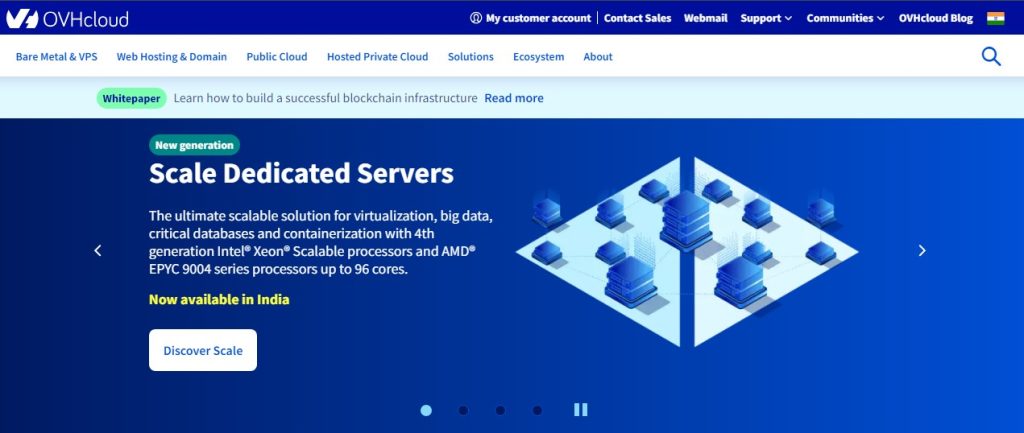
OVHcloud is based in France. It specializes in providing cheap dedicated servers and private cloud solutions. It mainly serves the European market. It offers many cloud services. But, it focuses on serving enterprises. It does not serve small or medium-sized organizations or individual developers. This sets it apart from others in the market for large enterprises looking for affordable hosting. Europe.
Scaleway

Scaleway is a European cloud provider. It offers a variety of hosting services, including databases, storage, and computing. It also offers bare metal services. Scaleway operates data centers in Europe. It primarily serves regional, not global, customers. This affects its suitability for companies aiming to serve a global customer base.
Accelerate Growth with Utho: A Unique Alternative to Azure
For many small and midsize businesses, Azure's complexity and unpredictable costs can be overwhelming. Instead of contending with Azure's complexities, it might be time to explore an alternative that's tailor-made for your needs. Enter Utho.
Utho is a cloud infrastructure provider designed with developers, startups, and SMBs in mind, offering a user-friendly and cost-effective platform. Here's what you get with Utho
Utho makes cloud services easy. Their pricing is simple, ensuring you always know what you're paying for. You get 24/7 support. Their customer reps are dedicated to helping you with technical issues. Their infrastructure focuses on the basics. It includes computing, storage, and networking. This focus makes it easy to understand.
Developers love the modern API-based layout. It boosts productivity. Utho private network ensures security. It also ensures reliable ones between data centers worldwide.

